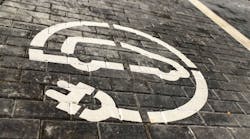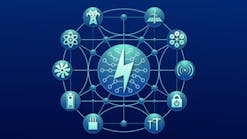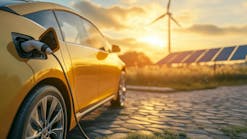The White House released what it called an EV Charging Action Plan to outline what the U.S. federal government is doing to build out electric vehicle charging infrastructure and progress toward President Joe Biden’s goal of putting more EVs on U.S. roads.
According to a White House release, the $65 billion Infrastructure Investment and Jobs Act establishes a Joint Office of Energy and Transportation that will focus on deploying EV infrastructure by working with industry leaders and manufacturers.
“The initial focus will be building a convenient, reliable public charging network that can build public confidence, with a focus on filling gaps in rural, disadvantaged, and hard-to-reach locations,” according to the release.
The infrastructure law will also “put us on the path” to a network of 500,000 EV chargers and allot some $5 billion for states to build a nationwide charging network.
“The law also provides $2.5 billion for communities and corridors through a competitive grant program that will support innovative approaches and ensure that charger deployment meets administration priorities such as supporting rural charging, improving local air quality and increasing EV charging access in disadvantaged communities,” according to the White House.
Energy Secretary Jennifer Granholm and Transportation Secretary Pete Buttigieg agreed to establish the joint office that the White House says will give states, communities, industry, labor and consumer groups with a coordinated federal approach on EV infrastructure.
DOT and DOE will also launch a new Advisory Committee on Electric Vehicles and is targeting to appoint members to this committee by the end of the first quarter of 2022.
DOT released an updated guide to deploying EV Charging in highway right-of-way in response to stakeholder interest. To gather input from the widest possible array of stakeholders, DOT has a new EV Charging Request for Information, where stakeholders can submit their priorities for Federal standards and guidance for consideration.
In February, DOT will publish guidance for states and cities to deploy EV charging stations to build out a national network along the nation’s highway system.
“This guidance will look at where we already have EV charging and where we need—or will need—more of it,” according to the White House. “No later than May 13th, DOT will publish standards for EV chargers in the national network to ensure they work, they’re safe, and they’re accessible to everyone.”
The administration also wants to boost U.S. manufacturing of EV batteries and components.
“In June, the Biden-Harris Administration released 100-day reviews of the supply chains of four critical products, including high-capacity batteries and critical minerals and materials. The reviews made dozens of recommendations across federal agencies securing a reliable and sustainable end-to-end domestic supply chain for advanced batteries,” according to the release.
The Federal Consortium for Advanced Batteries released the National Blueprint for Lithium Batteries, codifying the findings of the battery supply chain review in a 10-year plan to urgently develop a domestic lithium battery supply chain.
The DOE Loan Programs Office (LPO) also published new guidance and a fact sheet for the nearly $17 billion in loan authority in the Advanced Technology Vehicles Manufacturing Loan Program (ATVM) to support the domestic battery supply chain.
This will include the ATVM program making loans to manufacturers of advanced technology vehicle battery cells and packs for re-equipping, expanding or establishing such manufacturing facilities in the U.S.
DOE’s Federal Energy Management Program (FEMP) launched a new effort to support deployment of energy storage projects by federal agencies, including a federal energy storage review that will evaluate the current opportunity for deploying battery storage at federal sites and a call for projects from federal sites interested in deploying energy storage projects.
According to the White House, the infrastructure law includes:
· $3 billion in competitive grants for battery minerals and refined materials aimed at accelerating the development of the North American battery supply chain.
· An additional $3 billion for competitive grants aimed at building, retooling, or expanding manufacturing of batteries and battery components (such as cathodes, anodes, and electrolytes), and to establish recycling facilities in the United States.
· Recognizing the need for innovative and practical approaches to battery and critical mineral recycling, the act includes research, development, and demonstration recycling projects ($60 million) and efforts in cooperation with retailers ($15 million) and state and local governments ($50 million) to increase the collection of spent batteries for reuse, recycling or proper disposal. The electric drive vehicle battery recycling and second-life applications program ($200 million) is focused on making electric vehicles batteries (e.g., optimized designs) easier to recycle and utilize in secondary applications before recycling.
· An additional $750 million “Advanced Energy Manufacturing and Recycling Grant Program” to re-equip, expand or establish an industrial or manufacturing facility to reduce GHG emissions of that facility substantially below current best practices.


